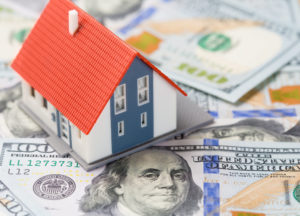 The startup costs associated with the development of rental properties can be steep. If you want to secure a steady cash flow, you need to be confident that your property holds value. However, quantifying a good cash flow is a highly individual process.
The startup costs associated with the development of rental properties can be steep. If you want to secure a steady cash flow, you need to be confident that your property holds value. However, quantifying a good cash flow is a highly individual process.
With that in mind, here are some steps to determine how much cash flow is good for a rental property.
How to Calculate Your Cash Flow
When you’re calculating your cash flow, you need to account for the expenses associated with the property, as well as the gross income that the property brings in. In essence, your net income — the amount of money you have left after you’ve paid all of your bills — constitutes the liquid assets that you have available.
Your bills, of course, can come in variable forms. You need to consider your operational fees, but also any payments you have to make towards the property’s mortgage.
Just like your bills vary, your net cash flow will likely vary somewhat, too. For instance, if a tenant leaves the property, there may be a period of time in which you have no incoming rent payments, especially if you have to repair damage or take care of maintenance tasks in the interim to prepare the property for the next renter.
Once you have a general idea of what your net cash flow needs to look like, you’ll have an easier time determining how much to charge tenants to rent your property.
What is a Good Cash Flow?
To have a “good” cash flow, you need to be bringing in enough money to cover your expenses, maintain a safety net for maintenance tasks or vacancies, and bring a little bit of profit into your pocket each month.
In general, experts recommend looking for properties that can bring in 0.5 to 1% of their overall property value each month. For example, if you’re thinking about purchasing a home for $100,000, you’ll need to make sure that you can get between $500 (0.5% of the property value) and $1,000 (1% of the property value) in rent each month.
Even if a property is inexpensive to buy, if the local area won’t support the kind of rent you need to cover your expenses, maintain the property, and provide some property, it won’t have enough cash flow to be worth it.
Increasing Your Cash Flow
What do you do if your property isn’t bringing in quite enough? There are always ways to improve your cash flow. Some of the simplest ways to stabilize your cash flow include:
- Working with existing tenants to lower your turnover rates
- Conducting regular maintenance throughout your property, rather than letting repairs build-up
- Adding value to your property to justify increases in rent
- Collaborating with a professional renters’ group
To learn more about the ups and downs of cash flow, reach out to RPM of Maryland. Our team of experts can help you to streamline your rental services, increase your cash flow, and improve your rent collection rate.

